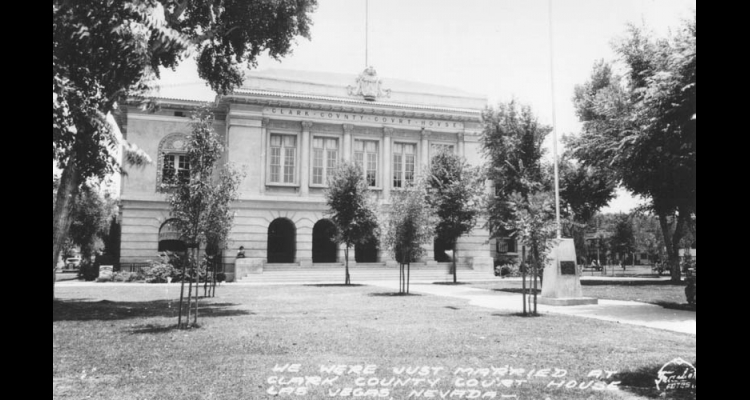William A. Clark
William Andrews Clark, a one-time United States senator and railroad magnate, is the namesake for Clark County in recognition of the rail line he owned and built that extended through the Las Vegas Valley, and the 1905 land auction that is considered the birth of Las Vegas.
Property that Clark acquired and later sold to support his San Pedro, Los Angeles & Salt Lake Railroad led to the creation of present-day downtown Las Vegas. He was elected to the U.S. Senate from Montana in 1901. The following year Clark bought nearly 2,000 acres of ranch land in the Las Vegas Valley from local pioneer Helen J. Stewart. He laid plans to make the valley, which had only about thirty residents in 1900, a major depot and staging area for his railroad, where trains could be serviced and its crews could live.
Clark, working closely with his brother and partner, J. Ross Clark, wanted to use the railroad to shorten the distance needed to transport copper ore from mines he owned in Montana. The rail line would also provide the first direct transit and cargo service from Utah to Southern California. He ultimately partnered with the Union Pacific Railroad, which had been building a competing line.
After the railroad was completed outside Jean, Nevada, in January 1905, Clark and his brother organized an auction to sell subdivided lots for businesses and residents just east of the new Las Vegas train station. The auction took place on May 15, 1905, in an open canvas tent at a spot near what is now the west side of Main Street and the Plaza Hotel in downtown Las Vegas.
Clark guaranteed the buyers of each lot access to his railroad, and many businesses that had located in 1904 and 1905 at the nearby McWilliams Townsite, to the northwest, moved to Clark's town. Though the McWilliams site started about six months before Clark's, the exodus soon made the new town—called the Clark Las Vegas Townsite—the preferred location for businesses and homes.
Born in Pennsylvania in 1839, Clark was a teacher and law school graduate who fought briefly for the South in the Civil War before entering the mining business in Colorado in 1862. He later made a fortune selling food, tobacco, and other goods to miners in Montana, and became wealthy with his Montana copper discoveries. Clark, an able public speaker, ran unsuccessfully for Congress in 1888 and 1893.
In 1899, when U.S. senators were still chosen by state legislatures instead of by general election, Clark was caught trying to bribe Montana legislators with $30,000 to elect him to the Senate—a practice not considered unusual for the time. Clark, said to have used $1,000 bills in his bribery attempt, once quipped: "I never bought a man who wasn't for sale." The Montana legislature finally elected Clark to the Senate in 1901, but much of his attention remained on his business affairs.
From 1902 to 1904, Clark clashed with the Union Pacific Railroad for rights-of-way into Las Vegas, finally agreeing to sell a share in his railroad to his competitor in 1904. After Clark established the railroad in 1905, his line cut the travel time from Salt Lake City to Los Angeles to only one day. He ran spurs north to other parts of Nevada. He continued to operate the line with his brother and Union Pacific Railroad chief E. H. Harriman, until Union Pacific bought it outright in 1921, making Clark even richer.
Clark had little to do with Las Vegas after establishing the town. He left Montana for New York after his senate term ended in 1907 and built a lavish mansion in Manhattan. When he died in 1925, his estate was worth $200 million, comparable to about $2.2 billion in 2005 dollars.
Article Locations
Related Articles
None at this time.
